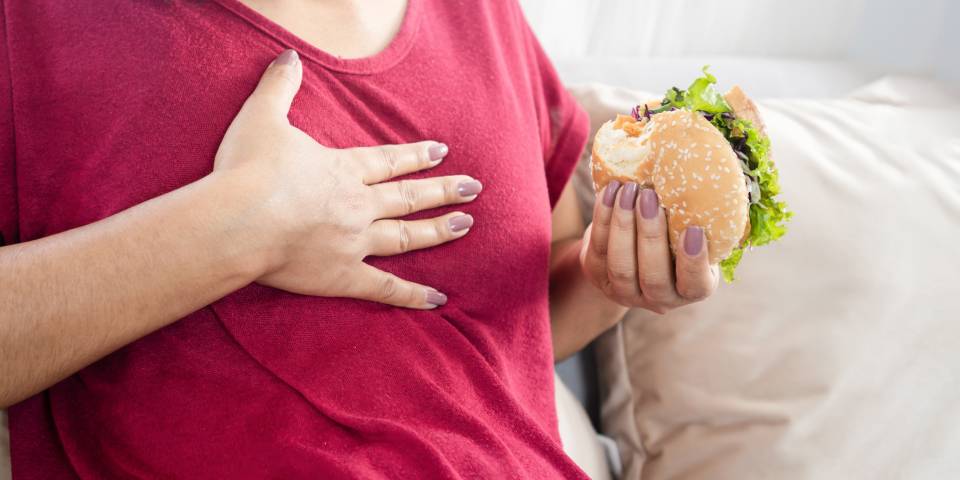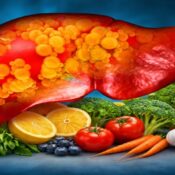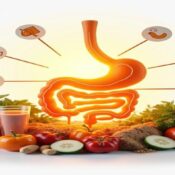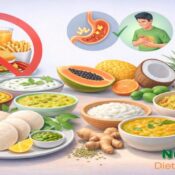
What to Eat and Avoid for Acidity & Gas Problems?
Digestive issues like acidity, bloating, gas, indigestion, and heaviness have become extremely common today. What to Eat and Avoid for Acidity and Gas Problems Most people try temporary fixes, but long-term comfort comes from improving your diet and lifestyle. At NutroHeal Diet & Obesity Clinic, guided by Dt. Bhushan Khedkar, one of the best dietitians in Pune, thousands of patients have experienced significant relief through simple nutritional changes.
Understanding Acidity & Gas Problems:
Acidity happens when excess stomach acid moves upward, causing burning, sourness, chest discomfort or burping.
Gas occurs when undigested food ferments in the intestine, creating bloating and heaviness.
Common causes include oily food, spicy meals, late-night eating, stress, junk food, and irregular routines.
Dt. Bhushan Khedkar is a certified Dietitian and Founder at NutroHeal Diet and Obesity Clinic, and he explains that digestive issues are often a result of repeated daily habits—especially what you eat and how you eat.
How Food Choices Affect Your Digestion?
Your stomach reacts to everything you put inside it.
- Heavy and oily meals slow down digestion.
- Fizzy drinks and fermented foods create more gas.
- Acidic foods trigger reflux.
- Irregular meal timing confuses the digestive system.
A balanced diet reduces acid formation, prevents gas build-up, and strengthens gut function. This is the core of the gut-health approach followed at NutroHeal.
Foods to Eat for Acidity & Gas Relief:
Fruits:
- Banana
- Melon
- Papaya
- Apple
Vegetables:
- Bottle gourd (doodhi)
- Pumpkin
- Carrot
- Spinach
Sweet potato
Whole Grains:
- Oats
- Brown rice
- Whole wheat chapati
Healthy Proteins:
- Moong dal
- Buttermilk
- Curd (if tolerated)
- Lean chicken, fish, tofu
Soothing Drinks:
- Jeera water
- Saunf water
- Warm water
- Chamomile or ginger tea
These foods reduce inflammation, calm the stomach, and support smoother digestion.
Foods to Avoid During Acidity & Gas:
Spicy & Oily Foods:
- Deep-fried food
- Heavy masala curries
- Excess chilli
Acidic Foods:
- Tomatoes
- Lemon, orange, citrus
- Vinegar/pickles
Dairy (if intolerant):
- Full-fat milk
- Cream, paneer (for some individuals)
Gas-Forming Foods:
- Rajma, chole
- Cauliflower, cabbage
- Soft drinks, soda
Caffeine & Alcohol:
- Coffee
- Strong tea
- Alcoholic beverages
These foods either spike acidity or increase gas formation.
Best Daily Habits to Control Acidity & Gas:
- Eat small and frequent meals
- Don’t lie down immediately after eating
- Avoid late-night dinners
- Chew food slowly
- Walk 10 minutes after meals
- Stay hydrated throughout the day
Simple lifestyle changes often create big improvements.
Home Remedies That Help:
- Warm water with honey (if tolerated)
- Jeera tea after meals
- Saunf or ajwain water
- Small ginger piece after food
These natural remedies help reduce bloating and support digestion.
When to Consult a Dietitian?
If acidity and gas problems occur frequently, don’t ignore them. You may need a personalised diet plan.
At NutroHeal Diet & Obesity Clinic, Dt. Bhushan Khedkar, one of the best dietitians in Pune, provides customised diet plans for acidity, IBS, gas issues, gastric reflux, weight management and lifestyle diseases.
Conclusion:
Acidity and gas can be controlled naturally when you focus on the right diet, avoid trigger foods, and follow healthy daily habits. With expert nutritional support from Dt. Bhushan Khedkar, a certified Dietitian and Founder at NutroHeal Diet and Obesity Clinic, you can achieve long-term digestive comfort and improved gut health.



